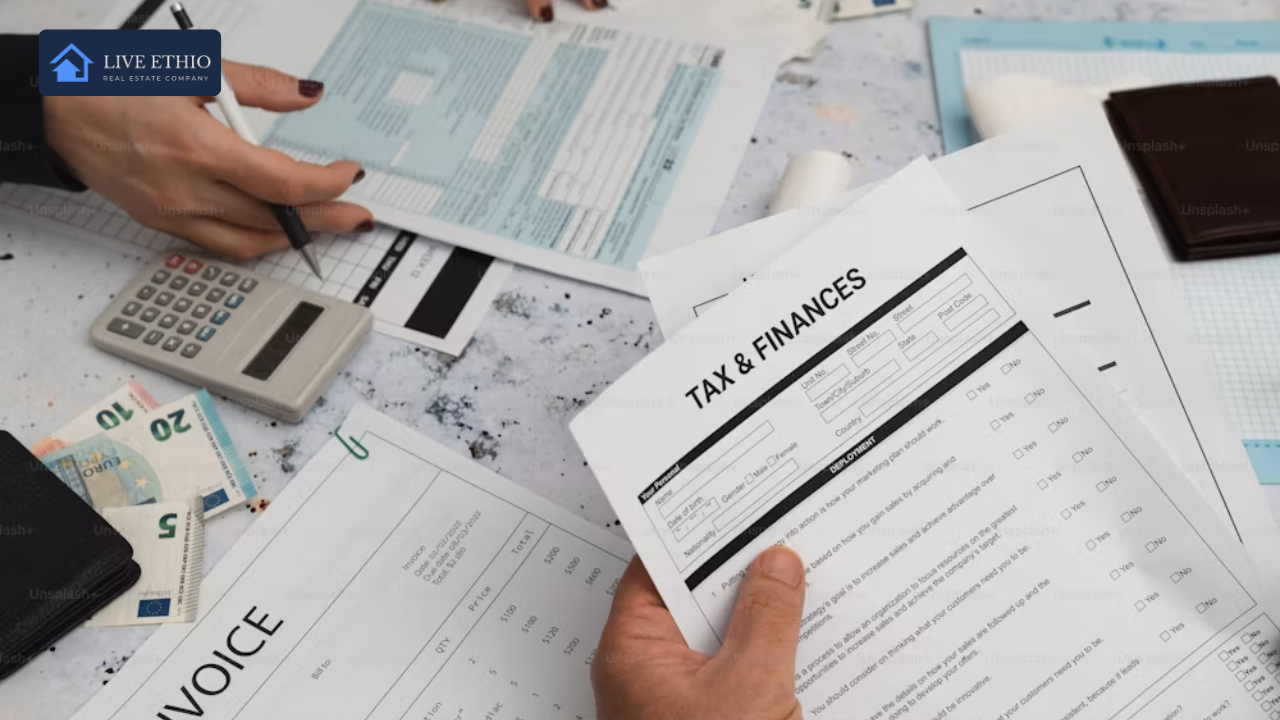The rental market in Ethiopia is thriving, particularly in Addis Ababa, where demand for both houses for rent and apartments for rent continues to grow. For property owners, this boom creates excellent investment opportunities, but it also comes with responsibilities most importantly, paying rental income tax. Whether you own a single apartment, several houses, or you are part of the diaspora managing property from abroad, staying informed about Ethiopia’s new tax rules is crucial.
In July 2025, the government introduced the Income Tax (Amendment) Proclamation No. 1395/2025, a reform that reshaped how rental income is taxed. For individuals, the system now follows a progressive model, meaning the more you earn from rent, the higher your tax rate. The first 24,000 ETB of annual rental income is completely tax-free, giving small landlords some breathing space. After that, rates gradually increase until they reach 35 percent for those earning above 168,000 ETB a year. For companies, the rules are simpler: rental income is taxed at a flat 30 percent, regardless of earnings.
2025 Rental Income Tax Brackets for Individuals
Compared to the old system under the 2016 proclamation, this is a significant improvement. Back then, taxes applied once income exceeded just 7,200 ETB annually, with rates starting at 10 percent and rising to 35 percent above 130,800 ETB. By raising the tax-free threshold to 24,000 ETB, the new law reduces the burden on small-scale landlords while still ensuring that those with multiple apartments or high-value properties make a fair contribution.
This reform matters because rental income tax has a direct impact on both landlords and tenants. For landlords, it determines how much of their earnings they keep and can even influence how they set their rental prices. A property owner renting out one apartment in Bole, for example, will now pay much less tax than before, while large investors with several houses for rent will face higher contributions. Tenants, too, may benefit since small landlords are under less pressure, which could help keep rents stable in certain neighborhoods.
Example: How Much Tax Would You Pay?
Let’s say you earn 60,000 ETB annually from a rental property. Here’s how the tax is calculated under the new system:
- Your income falls in the 48,001 – 78,000 bracket, taxed at 20%.
- The formula is:
Tax = (Annual Income × Tax Rate) – Deductible Amount.
- So, (60,000 × 20%) – 6,000 = 12,000 – 6,000 = 6,000 ETB.
This means that on 60,000 ETB of rental income, you would only pay 6,000 ETB in tax, keeping 54,000 ETB for yourself. Under the old system, the tax burden would have been higher, showing how the reform benefits small and mid-level landlords.
Of course, tax is only one piece of the puzzle when it comes to managing rental property in Ethiopia. To make the most of your investment, you also need to pay attention to the broader market. Understanding rental prices across Addis Ababa’s neighborhoods, opening a diaspora account if you live abroad, and keeping up with changes in banking and housing policy can all make a big difference in how successful your rental business becomes.
Ultimately, the 2025 rental income tax reform is a milestone in Ethiopia’s real estate sector. By easing the burden on smaller landlords and creating a fairer system overall, it makes the market more predictable and sustainable. For local landlords and members of the diaspora alike, staying updated on these changes and pairing tax knowledge with smart investment strategies will ensure that renting property in Ethiopia remains not only profitable but also long-term sustainable.
